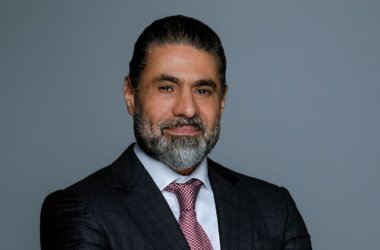 A happy worker is a productive worker, or so the saying goes. Motivation and a positive working environment can be critical for a successful business. Joe Lipscombe looks into how enterprises maintain their motivation in order to harvest optimal performance from their staff.
A happy worker is a productive worker, or so the saying goes. Motivation and a positive working environment can be critical for a successful business. Joe Lipscombe looks into how enterprises maintain their motivation in order to harvest optimal performance from their staff.
In today’s society, where the classic nine to five routine is as good as gone, employees are pushed to the limit constantly to keep up to date with tasks and challenges. With the expansion of mobility with BYOD, private and public cloud services – and more and more data being produced and shared worldwide – workers can be stretched to keep on top of their responsibilities in and out of the office.
Within this environment it’s only natural that motivation and fatigue will suffer as a result. Therefore, maintaining staff morale has never been more important than it is today, but what are the most effective methods to apply in order to produce a high spirited team?
In a recent poll conducted by Bayt.com, statistics showed that almost 32.7% of professionals rate the working environment in their company as ‘fair’ to ‘poor’. The poll also showed 23.4% of employees feel that the absenteeism in their organisation is high.
Suhail Masri, Vice President of Sales, Bayt.com, believes that simple adjustments within the office can help to decrease absence and improve morale, such as building an open-plan office space as opposed to a more old-fashioned cubicle style office. “While most employers previously opted for closed cubicles, today’s workspace revolves around information sharing and collaboration, and the new ‘thinkgroup’ model is increasingly being favoured by employers,” he says.
Wael Al Nadi, Senior Director, EMC, TEEAM Region, agrees: “Ask the questions; are employees being rewarded? Are there chances for employees to be promoted?” he says.
“In a survey held by EMC on employee satisfaction we learned that Dubai featured very lowly in a table of best offices to work in within the Middle East. This is a regional office, many people come and go and people travel a lot which restricts the opportunity for socialising and partaking in activities. Compare this to Saudi where they ranked number one, this is an office which is focused solely on this area. This means that the team can bond, socialise together and build connections,” he adds.
Management must be quick to spot unrest in the workplace if they’re to eliminate any issues from potentially becoming problematic. In a large and dynamic team this may not always be a simple task.
“From experience, I have learnt that team members are very sensitive to what is happening around them and pick up any negative vibes very quickly. As such, they may draw out incorrect or misleading conclusions,” says Najla Naim, Head of CPM RAN and IP BB Core, Ericsson ME.
However, Stephan Berner, Managing Director, help AG, points out that unclear company strategy can cause unrest in a team.
“Internal and external communication issues as well as no clear targets and objectives being set by management can all add to unrest,” he says.
This highlights the importance of covering every element of a team project from morale on a personal level to the objectives and factors of tasks on a professional level. Masri states that most common causes of unrest stem from the higher levels of an organisation.
“At the manager’s level, this can manifest itself by a lack of open communication channels, not setting a clear common goal for the team, micro-management or the absence of supervision, as well as much criticism and lack of praise,” he says.
The added issue within this region is that so many areas are made up of a largely diverse and ever changing workforce. Expats coming into a new office can take time to settle and adjust and of course this can be difficult for them and their colleagues, Al Nadi says.
“If someone is newly located from a different culture it takes time for them to settle down. Bringing in an expat is difficult and it can cause turbulence in a team. The money can be different, the food, the electricity even – simple things which can all add up and hinder the performance of a new employee. Sometimes these people won’t settle down at all and will be best suited going back to their original office or a different area all together,” he adds.
Recognising excellence
Monitoring employees is important if a company is to keep track of progress and workload. However, the current business landscape in the Middle East doesn’t make that an easy task. Employees are constantly on the move and constantly in and out of regional offices. Therefore, organisations may have to adopt more evolved ways of keeping up with the progress of their staff.
“There is no one simple way to monitor employee productivity. It all depends on experience, maturity and duration of the employee in their job,” says Naim.
“Employees in a new position usually require close and frequent attention by the manager or senior to provide direction and know-how. However, more experienced employees are more likely able to run their own work independently, but do need regular check points with their manager or senior to validate that they are on the right track,” she adds.
Masri highlights a few things that he believes managers should avoid in regards to monitoring staff, “Try not to set weak goals, micro-manage, belittle your employees, have outdated skills or have poor communication skills,” he says.
Adapting to the diverse region
The Middle East is a shifting business area in terms of personnel and office bases. Organisations have workplaces popping up and disappearing all over the region and no place more so than the UAE. This brings with it a very mixed workforce and a vast amount of employers will need to bring in staff members from different regions around the world.
Creating and building a diverse team can come with difficulties as well as benefits. Al Nadi discusses how EMC intentionally seeks a diverse workforce to patrol its Dubai based office due to the cultural mix of the area.
“Diversity is very important in a place like this. Pick a nationality and you’ll find an employee here who is of that nationality. It’s an expat community here, so it helps with the customers too as they’re from a wide mixture of places. This continuity is helpful for working relationships,” he says.
The difficulties lie in the stages of adapting to a new environment, as Masri states.
“While the diverse area comes with many benefits, some expats may face challenges with cultural differences. Companies need to orient new expat employees to the significant differences in local customs, culture, religion, and language. For many expats this is a larger leap than expected,” he says.
Constructing a diverse workforce and employing multiple expats wouldn’t be so frequent in the Middle East if it didn’t bring with it a strong armoury of benefits, Naim points out.
“Normally, expats are very curious about the culture and how things are done in a particular company or country. They are open to this new environment and eager to contribute positively,” she says.
“In general, expats should have a sense of mission that goes beyond doing their job, with the passing on of knowledge to the local employees. If done correctly, the expat’s job can create a very positive impact on the productivity of the workplace. Finally, the diversity in culture, language, and backgrounds are beneficial to the company and create a more positive and productive workplace,” she adds.
Dealing with unrest
It’s a harsh fact that some employees just do not work well in a team. A disruptive or restless staff member obviously needs to be dealt with and in a dynamic office with personnel coming and going, such issues can easily get hidden or swept under the rug and remain unresolved.
Berner offers his advice on said situations: “Direct communication is the best method, and this needs to be both ways. Ask the right questions and listen to the persons involved. Decisions can only be made based on facts. If the facts lead to a situation where a warning or, in the worst case, a termination is required, don’t wait to get it done,” he says.
You can act directly with unsettled and disruptive employees but what about the top dogs? The staff members who continuously go above and beyond their pay grade to deliver on their targets? Such employees may not seek, but do require rewards and incentives in order to maintain their morale, interest and focus on the job. This is a factor which can be more easily addressed in certain areas than others.
“In Cairo, the EMC office has a club called The EMC Club, and they do anything you can imagine. This needs to be adopted in other offices but obviously other offices aren’t as big or aren’t as well laid out. In this club they get bank promotions, gym membership, partake in charity work and parties – lots of subtle benefits for the work force,” Al Nadi explains.
“These things keep employees happy and motivated, having little benefits when you’re in a strange environment can make people feel more at home,” he concludes.





